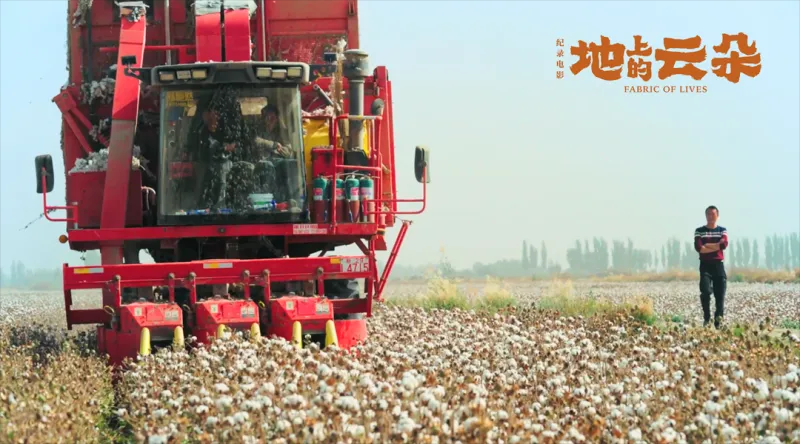Smart Farming Shapes Future of Agriculture in Xinjiang

Fabric of Lives, a new documentary film on cotton farmers in Xinjiang Uygur autonomous region in northwest China released on May 7, is a powerful testament to the resilience of Xinjiang's farmers and the role of technology in shaping their future.
The documentary portrays the lives of two cotton farming families in Aksu prefecture in southern Xinjiang as they navigate the challenges of a changing agricultural landscape.
Xinjiang, a region known for its vast agricultural landscape, is embracing remarkably advanced agricultural technology. Smart farming techniques, driven by smart equipment, are transforming the region's agriculture.
The Huier Smart Farm in the Xinjiang Changji national agricultural high-tech industry demonstration zone exemplifies this shift. Farmers here remotely control irrigation systems on their phones, while cutting-edge machines perform tasks that once required manual labor much faster. Mechanized planting, precision irrigation and intelligent fertilizer application are becoming the norm.
Xinjiang has made notable progress in agricultural mechanization. For example, the production of cotton, a staple crop of the region, has been 97 percent mechanized; for processing tomatoes, the mechanization rate exceeds 98 percent.
The technological advancements are also making farming more sustainable by significantly reducing water usage and boosting crop yields.
At the Huier Smart Farm, Internet of Things equipment including plant phenotyping observation devices is being installed.
Once that is done, the farm will have an integrated "space-air-ground" multidimensional intelligent sensing system, enabling real-time monitoring of crop growth, soil conditions and pest infestations. These innovations will help farmers make data-driven decisions, ushering in a new era of smart agriculture.
Efforts to modernize farmlands are also underway in Yuli, a county in the center of Xinjiang and a key production area for high-quality fine-staple and long-staple cotton.
Within a cotton farm, autonomous planting machines, guided by the BeiDou Navigation Satellite System, have revolutionized traditional planting. Once it took five people an entire day to plant 20 mu (about 1.3 hectares). Today a single machine can plant 120 mu in just one day.
As smart equipment reshapes farming in Xinjiang, the ongoing revolution in agricultural practices, fueled by data and mechanization, promises a brighter, more sustainable future for the region.
This transformation, captured in Fabric of Lives, reflects the spirit of innovation and determination that defines Xinjiang's agricultural sector today.






